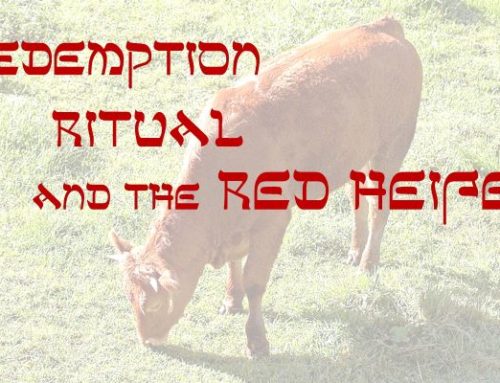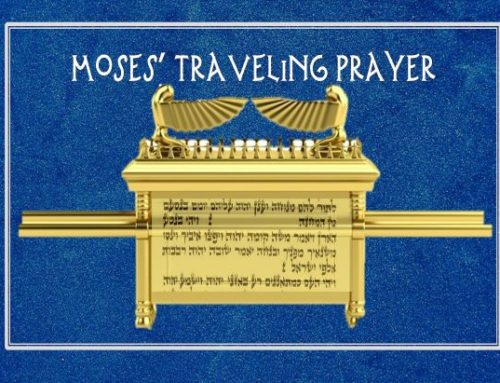Torah Portion Shlach Lecha, Numbers 13.1—15.41, Haftarah, Joshua 2:1-24
“And the LORD spoke to Moses, saying, “Send men to spy out the land of Canaan, which I am giving to the children of Israel; from each tribe of their fathers you shall send a man, every one a leader among them.” Numbers 13.1-2 NKJV
I like a good spy story. The disguises, coded language, and daring escapes make for a good plot. Our Torah portion this week has it all and more. There are name changes, reconnaissance missions, intelligence gathering, and yes, missteps along the way. What happens when the intelligence agency spreads disinformation among the very people they represent? This is not a story from today’s newspapers, it is a cautionary tale of spiritual leaders developing an agenda apart from God.
Moses tapped twelve leaders of the twelve tribes to spy out the land of promise. What began with great hope and expectation came crashing as a failed mission. Not because the objectives were not met, or because the spy mission had to be aborted; it failed because they did not interpret the data correctly.
As I write these words, I feel that this is a vital word for followers of Yeshua today. We are good at taking in data, perhaps like no generation before, yet are we interpreting that data through God’s Word? Secondly, are we equally susceptible, like Israel in the wilderness, to the covert dissemination of false information? For a few moments I want to challenge you with a faith mission, should you choose to accept. Are we prepared for an identity change like the spy Hoshea? Can we both interpret and be the credible source? Finally, are we able to decrypt the coded message in Moses’ account of the spies?
I. A Changed Identity
“These are the names of the men Moses sent to explore the land. Moses gave Hoshea son of Nun the name Joshua.” Num. 13.16 NIV
Names are significant, and Hebrew names especially so. Our text wants us to look at the names of these men with a critical eye, contrasting them with Joshua’s name being changed before the mission. Some of the men’s names were pleasant and some unpleasant. While some carried spiritual significance, others were descended from fathers named Horse and Camel. Why did Moses just before the expedition change the name of Hoshea to Joshua? It was just a small change, the addition of only one letter in Hebrew, a yud, but that change transformed the meaning from “rescue” to “Jehovah will save! His new name is the same name that the angel Gabriel told Joseph to name Jesus. Yeshua is the shortened form of Yehoshua (Joshua).
Was Hoshea’s name changed to hide his identity as in spy novels? I am sure there was a more spiritual purpose. Entering the land of promise required the saving grace of the Lord. Jewish tradition has long noted both the biblical and cultural subtle changing of a name to affect one’s destiny. Abram became Abraham, Sarai became Sarah, and David Green the famous first prime minister of Israel changed his name from Green to Gurion – David Ben-Gurion. Many new immigrants still change their family name upon “going up”, or making aliyah, to the Promised Land.
Joshua stood up against ten tribal leaders as a changed man, dependent on Jehovah as his Savior. It is amazing how a one-letter changed Hoshea’s destiny. We need that same transformation. What is your name? What is your lineage? Just a touch from Savior will transforms. Any person in Messiah is a new creation; the old is passed away. (II Cor. 5.17)
Yeshua, the Prophet like Moses, has also promised the victorious overcomer a new name. Though you may not know it, your new name is directing your destiny in Him.
“To the one who is victorious, I will give some of the hidden manna. I will also give that person a white stone with a new name written on it, known only to the one who receives it.” Rev. 2.17 NIV
II. A Credible Source
“There they reported to them and to the whole assembly and showed them the fruit of the land. They gave Moses this account: “We went into the land to which you sent us, and it does flow with milk and honey! Here is its fruit.” Numbers 13. 26-27 ESV
Moses sent twelve princes into the land having been briefed on its goodness by God Himself – land flowing with milk and honey, filled with vineyards and houses, and much different from the aridness of Egypt and the desert of Paran. From the Wilderness of Zin, they progressed north to Hebron, finally reaching the Valley of Eschol, meaning a cluster. There, they cut a cluster of grapes so large it had to be carried on a pole (Num. 13.23) and collected pomegranates and figs to bring back. They even managed to infiltrate Amalekite territory in the Negev, Jebusite, Hittite, and Amorite cities in the hill country, and took notes on the unusually tall Anakites of Hebron. Until this point, the mission had been a success.
Once returned from their mission however, there was division. All agreed on the initial report to Moses. It was indeed a land flowing with milk and honey filled with fortified cities, Amalekites, and Anakites, but they did not agree on the interpretation of the data. It was not their prerogative to interpret, it was their mission to faithfully report.
Joshua and Caleb alone stood against the other ten as men of faith, and only Joshua and Caleb of that generation entered the Promised Land with their families.
Caleb’s words, sung by generations in Israel, should be our anthem.
“We should go up and take possession of the land, for we can certainly do it.” Num. 13. 30 NIV
“עָלֹה נַעֲלֶה וְיָרַשְׁנוּ אֹתָהּ כִּי-יָכוֹל נוּכַל לָהּ” במדבר יג 30
A Bad Report
“But the men who had gone up with him said, “We can’t attack those people; they are stronger than we are.” And they spread among the Israelites a bad report about the land they had explored.” Numbers 13. 31 NIV
The problem, as noted by Jewish exegetes through the centuries, was not the spies initial report to Moses in Numbers 13.25-30. The problem was the concerted effort by ten men of their “intelligence community” to spin and disseminate false information among the people. This was an intelligence agency gone rogue. The “bad report” included power words such as a “devouring land”, men of size, we were like grasshoppers, and the dreaded mention of the Nephilim, a race of men destroyed in the flood. (Num. 13. 32) This was a different report than was given to Moses. I think that much of this “bad report” must be taken as suspect with the intention of manipulating the people. This reads like modern day media campaigns, but the result was an entire generation, apart from Joshua and Caleb who missed obtaining their inheritance.
Just as Moses spoke to the destiny of a man by simply adding a letter to his name, in effect adding God’s name to his name, so these men took a report and added their own agenda, perverting truth, and derailing the destiny of millions.
We stand at a generation poised to enter the promises of God. Yes, there are giants but there are also houses and vineyards, streams, and deep wells before us that God has intended for us to possess. I believe we are on the edge of the greatest move of God to bring people to salvation and the Kingdom. Will our words to this generation be a “bad report” or will we trust and believe in the God who has led us safely thus far, performed mighty miracles, and is our Creator?
III. A Coded Message
The Hebrew word for spying “la’tour” occurs twelve times within our Torah portion of three chapters. Literally, la’tour, from the verb תּוּר (tur) means to follow, guide or tour through the land. By extension of context, we translate it here as “spy-out”. The English word “tour” may even come from the Hebrew word. But the last instance of this Hebrew verb la’tour for spying is given in a different context at the end of our Parashah in the instructions for creating a blue thread for the corners of our garments. It was meant to catch the reader’s eye in Hebrew, perhaps like an encoded message!
“The LORD said to Moses, “Speak to the people of Israel, and tell them to make tassels (tzitzit) on the corners of their garments throughout their generations, and to put a cord of blue on the tassel of each corner. And it shall be a tassel for you to look at and remember all the commandments of the LORD, to do them, not to follow after your own heart and your own eyes, which you are inclined to whore after.” Numbers 15. 37-39 ESV
Our Torah Portion shifts from the incident with the spies to speak of sacrifices and finally the fringes (tzitzit) placed on four cornered garments. Stay with me for a moment as I explain why the account of the tzitzit are not randomly placed. Our code word (tur) for spying is strategically placed in the instructions for tzitzit like a final coda to their spy mission.
It seems the code word “tur” for spying was embedded into Num. 15.39. Twelve times tur or la-tour, the verb for spying, occurs. Perhaps in complement to the twelve spies. The last occurrence however is used in different context, and instead of spying, its context means “to follow after”.
How is tur used in our verse? The fringes with the blue thread (tzitzit) comes from the Hebrew word “to glimpse” something. Every time a wearer’s eyes are drawn to the blue thread it reminds them of their royal calling and God’s commands. Glimpsing the fringes also remind Israel to not to “follow” (tur) after our own heart and eyes. Because the ten spies followed their heart and eyes, the nation felt the consequences.
“And it shall be a tassel (tzitzit) for you to look at and remember all the commandments of the LORD, to do them, not to follow (tur) after your own heart and your own eyes…” Num. 15.39
What are we spying? I believe the Spirit of God chose this same verb (tur) in this context as follow, but used eleven times as spying, to emphasize that His people are on a mission to possess the promises. Are we spying giants or His greatness, spying impossibilities or promises, following Him or our heart?
Conclusion
Your mission, should you choose to accept it, is to see with eyes of faith. Sometimes the challenge before us is so great that we need to make personal changes. Hoshea did not inherit the Promised Land, but Joshua did! Secondly, our mission is to filter out noise, fake news, and disinformation distracting us from trusting our Savior. Finally, what are you spying? Twelve times, coded within our Parashah, is the verb translated as spying. But in a surprising twist, the Lord used that verb in a different context to follow His commands and not to follow (tur) after our heart and eyes.
A generation failed in their mission by following their heart and eyes. Perhaps that final point is the most important for our generation of believers. We can lose our inheritance by following our heart! It sounds so positive to “follow one’s heart”, yet the human heart is deceitful, and our eyes are easily distracted by giants. Continually glimpsing and obeying God’s commands and promise will lead us home. May His Word be your guide (la-tour) you into the Promise.
Shavuah Tov from Zion





